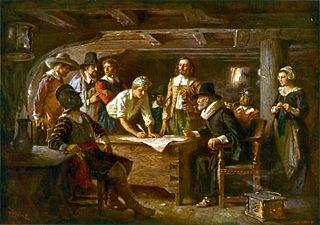My fourth biblical-theology paper.
David, son of Jesse, the second King of Israel, is the foremost character in the second half of I Samuel, beginning in chapter 16, all of II Samuel, and in I Kings, up to chapter 2, as well as their parallel passages in I Chronicles. He himself authored authored a large, though indefinite, portion of the Psalms. Thus, he rivals his descendant Jesus in the amount of Scripture devoted to his person.
The first King, Saul, rebels against God in I Samuel 15. As a result, God removes His anointing from Saul and his line. In his place, in chapter 16, the Prophet Samuel is commanded to anoint a replacement. Samuel examines the son’s of Jesse, going down the line from eldest down, rejecting them one by one, until David, the youngest is brought before him, and God commands him to anoint David as king-elect. We next see him in chapter 17, as Israel is standing intimidated by the champion of the Philistines, the giant Goliath. David, too young to be a soldier, is sent by his father to carry food to his elder brothers. At the front, he is appalled by the failure of any Israelite to answer Goliath’s challenge. Then David, still a beardless youth, a mere shepherd, volunteers. He approaches, not as a swaggering warrior as God’s appointee. He tells Goliath (17:45), “I come to you in the name of the Lord of hosts, the God of the armies of Israel, Whom you have taunted.” He strikes down Goliath with his shepherd’s sling, cuts of his head, and the now-inspired Israel drives away the rest of the disheartened Philistine army.
Saul is jealous of David, as he listens to the people sing, “Saul has slain his thousands, and David his ten thousands” (18:7). He knows that he has been rejected by God in favor of David, now his son-in-law (18:20-30), and resents him for it, especially in the face of the close friendship between David and Saul’s son Jonathan (ch. 20). Saul persecutes David in chps. 21-30, during which time David marries his second wife, the widow of Nabal (ch. 25). Saul and his sons, including Jonathan but not Ishbosheth. Ishbosheth becomes king of eleven tribes, while David is crowned over Judah. The divided kingdom lasts seven and a half years (II Sam. 5:5), until Ishbosheth is assassinated, and David is then crowned king over the reunited kingdom (v. 3). The only surviving member of Saul’s family, Jonathan’s lame son Mephibosheth (v. 4:4), was to remain an honored guest in David’s household (ch. 9).
The most important segment of David’s history is in chapter 7:8-17 (I Chronicles 17:1-15), the Davidic covenant. As was standard in such covenants, it begins with a rehearsal of God’s past blessings on David (vv. 8-9), then promises blessings (vv. 13-16). God promises peace, and a lineage on the throne of Israel forever. Verse 16 is the culmination: “Your house and your kingdom shall be made sure forever before me. Your throne shall be established forever.” David responds in a prayer of thanksgiving in vv. 18-29, ending with a confidence in God’s promises: “For You, O Lord God, have spoken, and with Your blessing shall the house of your servant be blessed forever.”
The next major event in David’s life is his sin with Bathsheba (ch. 11). After seeing her bathing on the roof of her house, David has her husband, Uriah the Hittite, exposed in battle with the Ammonites. With Uriah out of the way, David then takes the now-widow as his third wife. The sin is rebuked by the Prophet Nathan in chapter 12, and the newborn son of David with Bathsheba is struck down (vv. 15-23). However, their next son is Solomon, destined to be David’s heir. This demonstrates the human sinfulness of this man, of whom God said, “This is a man after my own heart” (I Sam. 13:14). As a result, David deals suffers from the sins of his own children” Amnon with Tamar, and the rebellion of Absalom. We see his nature again in his census of chap. 24, resulting in God’s striking down of 70 thousand of his people. I Kings 1 and 2 are the account of the transfer of the kingdom from David to Solomon, and then David’s passing (vv. 10-12).
David’s son, Solomon, as the newly-anointed king, relies of God’s covenant with his father in I Kings 3:6-14: “You have kept for him this great and steadfast love, and have given him a son to sit on his throne this day.” This suggests that David made great effort to teach Solomon what God had promised and done for him. But 5:3 indicates that he was also aware of the consequences of David’s bloody hands. We see both sides of David’s relationship with God in 8:15-20. But Solomon continues confident in God’s covenant promises (vv. 24-26). And that confidence is shared by all of Israel in verse 66.
God explicitly repeats the promises of the Davidic covenant with Solomon in 9:4-5. This is similar to the pattern of the Abrahamic covenant, with the terms renewed with each succeeding generation. However, unlike David, Solomon did not keep his side of the covenant. In 11:4-6, the writer of Kings shows Solomon following after the pagan deities of his multitudinous wives. Yet, God continues faithful (vv. 12-13), not for Solomon’s sake, but for David’s. Later in the chapter, God punishes the apostasy of Solomon by dividing the kingdom with a rebellion against his son, Rehoboam. Yet, even here, God remembers his covenant, and reserves the tribe of Judah to David’s line (vv. 32-39). This pattern is repeated with Rehoboam’s son, Abijam. In 15:3, the writer explicitly tells us that Abijam did not share the faith of his ancestor David, but vv.4-5 show us God acting out of faithfulness to David: “because David did what was right in the eyes of the Lord…” This is what Paul refers to, in II Timothy 2:13: “If we are faithless, he remains faithful - for He cannot deny Himself.” In II Kings 8:16ff, when Jehoram follows the apostate path of his Israelite kinsmen, even here, the writer tells us, “Yet the Lord was not willing to destroy Judah, for the sake of David His servant, since He promised to give a lamp to him and to his sons forever.”
The writer of Kings continues to use David as the standard against whom to compare his posterity. His lineage rates badly in 14:3 and 16:2, but well in 18:3. God again recalls His covenant in 19:34 (parallel in Isaiah 37:33-35), as Assyria, after eliminating the northern kingdom, now attacks Jerusalem: “I will defend this city to save it, for My own sake and for the sake of My servant David.” As Paul said to Timothy, God acts according to His covenant promises because He is watchful over His own truth and reputation, as well as the welfare of His elect.
David himself writes of God’s establishment of His covenant. In Psalm 18:20-24, he wrote, “The Lord dealt with me according to my righteousness, according to the cleanness of my hands… The Lord has rewarded me according to my righteousness, according to the cleanness of my hands in His sight.” He does not claim that his righteousness is inherent for (v. 32), “[God] equipped me with strength and made my way blameless.” He remembers the particular elements of the covenant, as he credits God with “making me the head of the nations” (v. 43) and “subduing peoples under me” (v. 47), promises “to David and his offspring forever” (v. 50). Asaph sings of the covenant in Psalm 78:67-72: “He chose David His servant… to shepherd Jacob His people… [And] with upright heart he shepherded them.” Ethan the Ezrahite has the voice of God recalling (89:19-37), “I have found David My servant; with My holy oil I have anointed him, so that My hand shall be established with him… My faithfulness and My steadfast love shall be with him… He shall cry to Me, ‘You are my Father, my God, and the Rock of my salvation’... My steadfast love I will keep with him forever, and My covenant will stand firm for him. I will establish his offspring forever, and his throne as the days of the heavens… I will not remove from him my steadfast love or be false to My faithfulness. I will not violate My covenant or alter the word that went forth from My lips…” Ethan claims this faithfulness for all of God’s people (v. 49): “Lord, where is your steadfast love of old, which, by Your faithfulness, you swore to David?”
The unnamed writer of Psalm 132 applied the same principle of prayer. In verse 1, he starts with, “Remember, O Lord, in David’s favor…” He claims God’s faithfulness to david for the benefit of all of Israel. Verses 11-12: “The Lord swore to David a sure oath from which He will not turn back: ‘One of the sons of your body I will set on your throne. If your sons keep My covenant and My testimonies that I shall teach them, their sons also forever shall sit on your throne.” The writer asks, “If Jerusalem is destroyed, how can You fulfill Your promise that there shall always be a son of David to rule there?” The promise to David, in his eyes, has positive implications for the whole nation.
The Prophet Isaiah also applied the Davidic covenant to the people of God, as the promise according to which the Messiah would come. In Isaiah 9, the famous Christmas story, he writes (vv. 6-7): “For to us a child is born, to us a son is given; and the government shall be upon His shoulder… Of the increase of His government and of peace there will be no end, on the throne of David and over his kingdom, to establish it and to uphold it…” So, we see an expansion of the vision of the covenant. Where David had seen it as a political promise, with his dynasty established over ethnic Israel, Isaiah now expands that vision to point to a particular King, yet unnamed, who shall take that kingdom to a far greater glory. He repeats that vision in 16:5, “A throne will be established in steadfast love, and on it will sit in faithfulness in the tent of David one who judges and seeks justice and is swift to do righteousness.” Again, he moves the covenant from a promise of a lineage of men to a particular One.
Isaiah also makes use of the covenant to encourage the faithful remnant of Israel. In 55:1-5, he calls the people to repentance, assure of the faithfulness of God, as seen in His covenant with David. Verse 3: “Incline your ear and come to Me; hear, that Gsoul may live; and I will make with you an everlasting covenant, My steadfast, sure love for David.” David, the sinner of Bathsheba and Psalm 51 relied on the faithful mercy of God. If he did it, can’t I?
God Himself made the same comparison through Jeremiah (17:24-25). Using the Sabbath as a test case, He calls the people to repent, and “then there shall enter by the gates of this city kings and princes who sit on the throne of David, riding in chariots and on horses, they and their officials, the men of Judah and the inhabitants of Jerusalem. And this city shall be inhabited forever.” Or, if they refuse (21:12, repeated in 22:2-4), “Hear the word of the Lord, O house of David! Thus says the Lord, ‘Execute justice in the morning, and deliver from the hand of the oppressor him who has been robbed, lest My wrath go forth like fire, and burn with none to quench it, because of your evil deeds.’” Repent and enjoy the blessings of David, but do not presume on them to excuse your wickedness.
Then, as Isaiah 9, Jeremiah turns to the One who will ultimately fulfill God’s promises to David. 23:5: “I will raise up for David a righteous Branch, and He shall reign as king and deal wisely, and shall execute justice and righteousness in the land. In His days, Judah will be saved, and Israel will dwell securely. And this is the name by which He will be called: The Lord is our righteousness.” Where the writer of Kings lamented that king after king failed to evidence the faith of David, the One Davidic king to come will do so. And, on the side of the people (30:9): “They shall serve the Lord their God and David their king, Whom I will raise up for them.” Just as the One king will demonstrate the best of David’s faith, under His rule the people will do so, as well.
The Branch appears again in 33:14-26. The content of the Davidic covenant is repeated in verse 17: “David shall never lack a man to sit on the throne of the house of Israel…” (and again in verses 21 and 26). The passage also adds a new element (v. 18): “The Levitical priests shall never lack a man in my presence…” (also verse 21). David wasn’t a priest, so this aspect of the Branch is an expansion, perhaps from the reference to the priesthood of Melchizedek in David’s Psalm 110:4. It isn’t relevant here, but Christ fulfilled this in His union of the offices of priest and king.
The Prophet Ezekiel prophesies a coming Messiah as the fulfillment of God’s covenant promises to David in 34:22-24: “I will set up over them one Shepherd, my servant David, and He shall feed them; He shall feed them and be their Shepherd. And I, the Lord, will be their God, and my servant David shall be prince among them.” Ezekiel continues this theme in 37:24-28: “My servant David shall be king over them, and they shall all have one Shepherd… David My servant shall be their prince forever… My dwelling place shall be with them, and I will be their God. and they shall be My people…” Notice his resurrection of the servant theme of Isaiah.
This Davidic king also makes a brief appearance in the prophecies of Hosea (3:5): “The children of Israel shall return and seek the Lord their God and David their king, and they shall come in fear to the Lord and to His goodness in the latter days.” And in Amos 9:11-12: “In that day I will raise up the booth of David that is fallen and repair its breaches,... that they may possess… all the nations who are called by My name.” And in Zechariah 12: 6-13:1, especially that last verse: “On that day there shall be a fountain opened for the house of David and the inhabitants of Jerusalem, to cleanse them from sin and uncleanness.”
In the New Testament, David plays a prominent role in the apologetic efforts of the Apostles to prove that Jesus was the expected Messiah and Branch of the prophets.
In the genealogy of Jesus as given by Matthew (1:1-17), not only is the line of David prominent, but the author emphasizes the number fourteen, even skipping generations to create the three sets of fourteen. Why? Because, in hebrew, the letters also represented numbers. The consonants of David’s name (daledh-waw-daledh) add up to fourteen. Thus, not only is Jesus a lineal descendant of David, but Matthew adds that name symbolically three more times to multiply the emphasis on that fact. Not only is Jesus addressed or referred to as the “Son of David” eleven times (e. g., 9:27 and 12:23), but He Himself uses David’s words from the Psalms to express the connection in His teachings (e. g., 22:43).
The words of the David covenant appear in Mark 11:10: “Blessed is the coming kingdom of our father David.” And again in Luke 1:32-33: “He will be great and will be called the Son of the Most High. And the Lord God will give to Him the throne of His father David, and He will reign over the house of Jacob forever, and of His kingdom there will be no end.” And again in verse 69: “[The Lord God of Israel] has raised up a horn of salvation for us in the house of His servant David.” And finally in John 7:42: “Has not the Scripture said that the Christ comes from the offspring of David, and comes from Bethlehem, the village where David was?” Thus, the Gospel writers confronted the Jews with their own covenantal expectations as pointing to this Jesus, whom they were to reject and crucify. This would serve as a direct apologetic against the claims of unbelieving Jews that the Messiah is still to be anticipated, because Jesus did not fulfill that role as they expected.
In Acts, Luke turned to David again, but with less of the covenantal emphasis. In 1:16, 2:25-30, 2:34-35, and 13:33-38, he borrows from Jesus own strategy, using David’s words to emphasize the connection between David and Jesus. He explicitly makes Jesus the hair of David in 13:23: “Of this man’s [i. e., David’s] offspring, God has brought to Israel a Savior, Jesus, as He promised.” This language is reminiscent of th Branch terminology of the Prophets. See also 15:16-17.
Paul also borrows this apologetic theme, such as in Romans 4:6-8, 11:9-10, and II Timothy 2:8. Yet, he never follows up on the covenantal theme, a role he gives, instead, to Abraham.
Jesus again picks up His “Son of David” role in Revelation 3:7: “The words of the Holy One, the True One, Who has the key of David…” And, in the words of an elder in 5:5: “Behold the Lion of the tribe of Judah, the Root of David, has conquered…” And in Jesus’s words again, in 22:16: “I, Jesus, have sent My angel to testify to you about these things for the churches. I am the root and the descendant of David, the bright morning star.”
So, the story of David min the Bible is the story of God’s faithfulness, both to him and to the people of God as a whole. Through His words to him, God establishes a theme of promised redemption, peace, and prosperity, not as the result of merit, but because of God’s covenantal promises of grace, justification, sanctification, and glorification. The New Testament writers continue the story of David, both in their own words and in the words of Jesus, to point Israel to Him. Here is the man promised for a thousand years! Here is the promise of God incarnate! All that we have waited for is here, standing embodied before you. And even in the last verses of the Bible, Jesus Himself points to His purposes as bringing to pass God’s faithfulness to David, and to all Israel in him.











